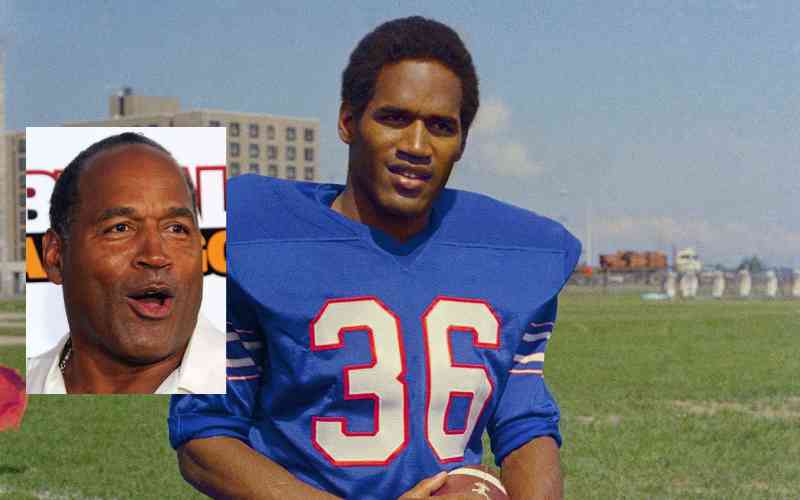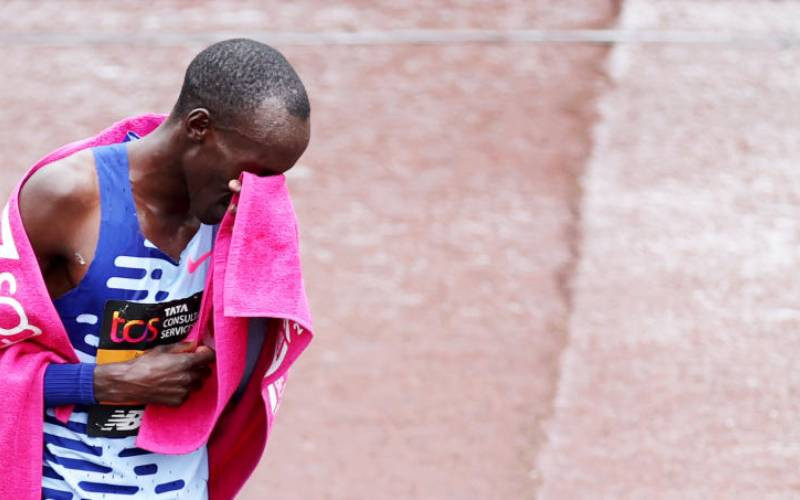By Mwaura Samora
NAIROBI, KENYA: The Baba Dogo area, a densely populated neighbourhood in the eastern side of Nairobi, is known more for football, factories and food vendors.
However, the sprawling semi-slum has been in the news in the recent past for odd reasons. Blingy Nairobi Senator Mike Sonko was invited in Baba Dogo to receive an AK47 rifle from a reformed gangster and launch a trendy matatu bought by a youth group.
The unseen hand behind all these news-making events is the area’s County Representative Shadrack Juma, 30, who says his leadership philosophy is inspired by Barack Obama’s 2008 presidential campaign mantra “Yes we can.”
“Being elected into leadership is like being selected to play for the national team,” the former Baba Dogo United Football Club player says. “You don’t celebrate the selection until you score a goal, which explains why I never held celebrations after my victory. That I will do after scoring all my major goals, hopefully before the end of my term.”
The lean and light-skinned man whom friends call “Shaddy” says he plunged into the murky waters of grassroots politics to quench “my hunger to serve” and “create opportunities” for the youth and women.
“After my election, I held numerous consultative meetings with owners of various companies and urged them to consider hiring local youth and women whenever opportunities arise. So far this programme has resulted in 130 people being employed,” Juma, who had to drop from school at Form Three at Guru Nanak Secondary School for lack of school fees, explains.
“The intake was slow particularly because many of the workers were unskilled, so I decided to set up Shadrack Juma Foundation (SJF) Tailoring School to train women how to use industrial sewing machines similar to the ones used in the EPZ, after which they would be employed by these companies.”
But the challenge, he says, was raising money to pay the Sh60,000 required for each sewing machine given that County Reps have not been allocated development money. Although the Nairobi City County Assembly passed the Ward Development Fund (WDF) Act last year that is to allocate 15 per cent of the county’s annual budget to the wards, the Controller of Budget has said allowing County Reps to manage county funds is unconstitutional.
“The WDF is caught up in issues at the moment and all indications are it will take a long time before it materialises, yet the people need to see things being done,” the youthful leader told The Standard during an interview that was conducted in a Baba Dogo sidestreet.
“People want to see things happening whether or not there is WDF, so as a leader you have to be innovative and resourceful in ways that will get things moving.”
Determined to make things happen, Juma took a Sh700,000 loan from Family Bank and bought 10 sewing machines, rented premises and hired two trainers.
“The bank manager was quite impressed that I was using personal funds to set up a community empowerment centre. He readily granted me the loan,” Juma, who once headed the Mathare Youth Sports Association (MYSA) Baba Dogo branch, recalls. “With each sewing machine going for Sh60,000, I bought ten of them and used the rest of the funds to pay the rent, staff and meet other operational expenses.”
The bank deducts Sh30,000 every month from Juma’s salary but he hopes to clear the balance in three years.
“When I was vying for this position I did not have money. People fundraised for me several times and I was ultimately able to win the seat. They invested their trust and votes in me so it’s my turn to use my position to impact their lives positively,” Juma, who was elected on an Orange Democratic Movement (ODM) ticket, narrates.
Stay informed. Subscribe to our newsletter
“I am duty-bound to make a difference in their lives, even if it means using my own money because without them I would not be a leader.”
After setting up the centre, he called for applications across the sprawling neighbourhood and got more than 500 responses from women to take up the 63 training slots. Deciding who to take in or leave out, was a tricky balancing act, the County Rep says.
“We divided the applicants according to the ward’s five neighbourhoods of Laundry, Kasabuni, Kariadudu, Riverside and Baba Dogo and wrote ballots from which we allocated ten for each,” Juma explains. “The remaining 13 slots we gave to other special interest groups. The balloting was done in such a way that those who missed out are in the queue for the next intake.”
Since initiating the tailoring project, the number of calls for help that Juma receives from his constituents have dropped by more than 80 per cent.
“My phone was often clogged with more than a thousand messages and numerous calls from people asking me for jobs that it sometimes would hang or jam,” he explains. “But since the project was launched, I can walk freely in the neighbourhood chatting up my constituents. Today very few people ask to borrow money from me because they are empowered.”
Hilda Anisi, one of the first beneficiaries of the SJF Tailoring School, bubbles with optimism as she narrates her tale to us.
“After completing high school, I began to do menial jobs since my parents could not afford to take me to college,” the 27-year-old housewife explains. “I used to work as a gardener in Westlands but the money I got was so little that it couldn’t even cover my fare.”
The mother of three says even if she does not clinch a job at EPZ, she will have some knowledge with which she can set up a tailoring shop.
Similar sentiments are echoed by Martha Kasandi, another beneficiary. “I used to be a househelp earning Sh3,000 a month and without any technical knowledge,” the 30-year-old says.
“But although I resigned from the job that gave me money to sustain my two children, I am optimistic that after the course I will get a better paying job and possibly even set up my own tailoring shop.”
Juma, whose favourite book is Barack Obama’s Audacity of Hope and the Koran, says the reason many elected leaders change their phone numbers or hide from their constituents is because they fail to create job opportunities for their people.
Opportunities
Juma talks about opportunities he has created. As a MYSA official, Juma went on a trip to Norway in 2004 and while there he made several contacts, some of whom he convinced to pay school fees for needy children in his Baba Dogo neighbourhood.
“The foster familly that I stayed with in Norway was very excited when they got the news of my election and have connected me with a local council in Norway, the Bergen Municipal Council, as a development partner,” the politician, who is currently enrolled for a diploma in county governance at KCA University explains.
“I have already spoken to Governor Evans Kidero about it and he pledged to support this partnership in the best way he can. I will be travelling to Norway soon to explore how Norwegian city authorities can foster development in Baba Dogo.”
Juma, who played competitive football at Baba Dogo United alongside well known stars like Geoffrey Kokoyo, Osborn Monday, Josiah Odhiambo and Dennis Nzomo, says he wants the SJF School of Tailoring to grow into an income-generating company that can employ youths and women.
Besides training women tailors Juma dreams, the SJF staff will also be going round to schools and identifying children with old uniforms that need replacement.
“As a kid going to Korogocho Primary School (since renamed Daniel Komboni) my uniforms were completely worn out; my sweater was in tatters and my shorts had huge patches at the back,” recalls the man who says he derives motivation from leaders like Marcus Garvey, Malcom X and John F Kennedy.
“But whenever my parents bought me new clothes I would always be psyched up for school.”
On the issue of the controversial Ward Development Fund, Juma says those opposed to its implementation should know that it is not the County Reps they are hurting, but the citizenry.
“Most leaders, especially MPs, think that if the County Reps are empowered they will pose a threat for them in future elections,” the budding politician observes. “If the Fund had been established, I wouldn’t have set up the SJF using my personal funds of which I am being slashed Sh30,000 every month. I could have used the Fund.”
Juma says he admires three Kenyan leaders for their exemplary development work and would like to meet them in person one day. They are Raphael Tuju, Peter Kenneth and Machakos Governor Dr Alfred Mutua.
“While the two legislators did exemplary work for their constituents, the Machakos governor has been the talk of town for his unprecedented initiatives,” says Juma. “The trio are my greatest inspiration and role models.”
Elected
And as for elected leaders who travel abroad, he says they should use the platform to create connections and establish contacts that will help them bring development in the areas they serve.
“If they bring development from those trips, even their constituents will want them to travel more so that they can attract more foreign investment,” explains the politician whose overseas contacts have organised several medical camps in Baba Dogo.
During election campaigns last year, some of his opponents evoked the ethnic card while others claimed he was a mole from the rival coalition since he was from the Taita community, a minority group in the area.
“But my track record of working with the youth and women in clinching bursaries from my connections in Norway and Sweden and starting several youth projects stood me in good stead,” Juma explains. “The youth and women showed that negative ethnicity can be butchered at the altar of issue-based leadership.”
Dima Dika, the chairman of Laundry Village in Baba Dogo Ward, says that Juma has brought a type of leadership that is radically different from what local people are used to. “Besides having a heart for the people long before he became a County Rep, Juma’s leadership is visionary and development oriented as witnessed by the number of projects he has initiated for the last one year,” Dika, 50, says.
“He treats all people, regardless of their ethnicity or status, equally . . . he is a man of the people. I believe he will do wonders in the next five years.”
 The Standard Group Plc is a
multi-media organization with investments in media platforms spanning newspaper
print operations, television, radio broadcasting, digital and online services. The
Standard Group is recognized as a leading multi-media house in Kenya with a key
influence in matters of national and international interest.
The Standard Group Plc is a
multi-media organization with investments in media platforms spanning newspaper
print operations, television, radio broadcasting, digital and online services. The
Standard Group is recognized as a leading multi-media house in Kenya with a key
influence in matters of national and international interest.
 The Standard Group Plc is a
multi-media organization with investments in media platforms spanning newspaper
print operations, television, radio broadcasting, digital and online services. The
Standard Group is recognized as a leading multi-media house in Kenya with a key
influence in matters of national and international interest.
The Standard Group Plc is a
multi-media organization with investments in media platforms spanning newspaper
print operations, television, radio broadcasting, digital and online services. The
Standard Group is recognized as a leading multi-media house in Kenya with a key
influence in matters of national and international interest.








